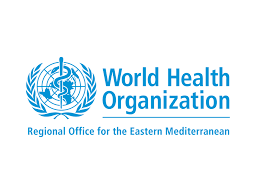Following the devastation wrought by Storm Daniel, hundreds of thousands of people in eastern Libya are mourning the loss of loved ones, homes, possessions and livelihoods. Tens of thousands more are desperately hoping for news of the nearly 9000 people who remain missing.
WHO estimates that at least 1 in 5 people will suffer from mental health conditions such as depression, anxiety and post-traumatic stress disorder in the aftermath of a major emergency like Storm Daniel. Mental health services were one of the top 3 priorities – along with safe water and primary health care services – identified by an interagency assessment team that visited eastern Libya in the early days of the disaster. The need for mental health care is becoming even more acute in the aftermath of the crisis.
Dr Ahmed Zouiten, WHO Representative in Libya, said that mental health services are essential. “Broken bones can be mended, but psychological wounds – which are often invisible – take much longer to heal. We are working with the authorities to make sure that people can obtain basic mental health support in primary health care facilities and community centres. However, some people in acute distress will require specialized psychological and psychiatric care.”
WHO and the health authorities in eastern Libya are working to establish a range of mental health services, from basic psychological first aid to specialized psychiatric care. WHO has appealed to neighbouring countries for assistance to help mitigate the acute shortages of psychiatrists and psychologists in Libya. It also plans to train Libyan health workers, volunteers and emergency responders in psychological first aid and basic psychosocial support.
WHO is supporting the setting up of mental health clinics staffed by specialists. Beyond addressing immediate needs, these specialists will focus on helping deeply traumatized survivors to deal with grief, anxiety and loss. They will also support primary health care staff and community workers, many of whom have continued to support the emergency response amid their own grief and loss.
“WHO and its partners have invested significantly in strengthening mental health care in Libya over the past decade; however, these efforts need to be substantially scaled up with immediate effect. We are committed to continuing to work with health authorities and national and international partners to ensure that mental health services are available and accessible to all those in need, stressing that mental health is not a luxury but rather a universal human right – for everyone, everywhere,” Dr Zouiten emphasized.
Distributed by APO Group on behalf of World Health Organization – Regional Office for the Eastern Mediterranean.
